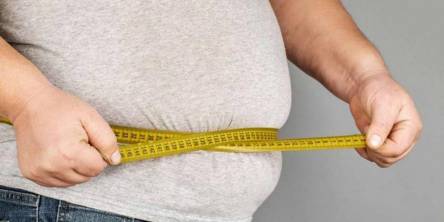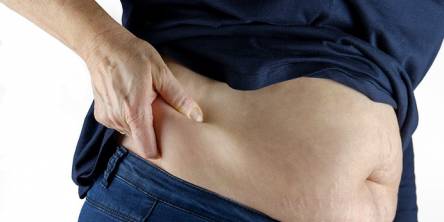Getting in Shape? Plan for These Stages of Weight Loss

Losing weight takes commitment and determination. If you're trying to improve your health by shedding pounds, you'll find that understanding different stages of the process can help you stay committed when it feels like you're hitting a plateau. Learn more about these stages of weight loss so you can adjust your diet, your workouts, and your expectations accordingly.
Rapid Weight Loss
We have good news and bad news about how your weight loss journey will likely start. The good news is that this is the period during which you lose weight the fastest, which can be very exciting and encouraging. Seeing weight loss results quickly comes as a result of making significant changes to your lifestyle and your body responding positively. But there's a downside as well; this stage doesn't last forever, so you need to be prepared for the challenges ahead.
Plateau Period
After seeing such great results in the beginning, it can be really disappointing to realize you've reached a plateau. This occurs when the changes you initially made in terms of exercising more and eating healthy are no longer producing the rapid weight loss you experienced at first. You may have seen a pound or two come off the scale every week before, but now you might not see any change (or even a slight weight increase) in a week.
Once you reach this plateau, it's time to push yourself both physically and mentally. Switch up your workouts to something slightly more challenging while remaining committed to your weight loss goals.
Temptations to Cheat
At this point, you've stuck to your exercise schedule and healthy diet for quite a while. You pushed through the plateau and continue to slowly but surely lose weight. But all that hard work makes you want to let off a little steam, and your first temptation is to stray from your strict weight loss plans. You start thinking it's not so bad if you cut back on your weekly workouts or sneak in a few unhealthy foods here and there. This often happens near a holiday or special event, so try to anticipate these temptations so you can avoid them and stick to your plan.
Back on Track
After deviating from your goal just a bit, you recommit yourself to your weight loss journey. This is where it starts to sink in just how far you've come. This is a different kind of excitement from that initial period where the weight was coming off quickly; now you appreciate every pound lost and know just how much hard work went into shedding it.
Consolidate development with your consistent plan
Discovering time to exercise can be a test. To make it simpler, plan time to practice as you would some other arrangement. Plan to watch your most loved show while strolling on the treadmill, read while riding a stationary bicycle, or enjoy a reprieve to go on a stroll at work.
Weight Loss Maintenance
Did you hit your weight loss goal? If so, you should certainly celebrate. However, there's still one more step in your weight loss journey to prepare for. Maintaining your new weight will present a new type of challenge. Instead of viewing your workouts and diet as a means to lose weight, you need to start seeing them as new habits that you can commit to long-term. Track your exercise and eating patterns with a handy app like LifeSum to make sure you're staying on track with your health goals.
Study these stages so you know what to expect as you work toward your weight loss goal.
Similar Articles
Knee discomfort is common in those who are overweight or obese. Losing weight can help relieve discomfort and minimize the risk of osteoarthritis (OA) in many circumstances.
IV therapy for weight loss is a faster and more effective method to lose weight and maintain a healthy lifestyle. Iv drips contain a blend of minerals, vitamins, and antioxidants in a package of normal saline or other iv fluids that are infused directly in the vein
Obesity is a common condition in the United States and all over the world. Bariatric surgery can be the most effective treatment for extreme obesity, as well as many other medical conditions such as heart disease and kidney disease.
Obesity is defined as carrying too much weight, mainly fat, around the body. The most prevalent cause of excess fat is that a person consumes more calories than they burn. Obesity is also caused by sedentary behavior and the eating of high-energy meals.
Weight loss is a difficult thing. It’s not just about diet and the levels of physical activity. If you can’t lose weight despite numerous attempts, you might think that your body is betraying you, your metabolism is slower than normal, or that you'll need to eat only boiled chicken and broccoli for the rest of your life.
If fat cells are essential to our body, their surplus can be complex, even particularly unsightly in some cases. Many patients see a specialist in cosmetic medicine or plastic surgery to get rid of their localized fat deposits.
There are many reasons as to why people would try dieting, exercising regularly, and drinking more water; the health benefits of these methods have been studied and proven time and time again.
Weight loss, exercise, and diets have mostly been associated with people below the age of 60, something which has left experts quite surprised. Weight loss is equally important when it comes to the elderly, probably more, because our metabolism rate begins to decline as we age
Detoxification is the process by which your body gets rid of impurities. This is an important process for improving health and promoting weight loss. Luckily your body is naturally equipped to detoxify itself.









